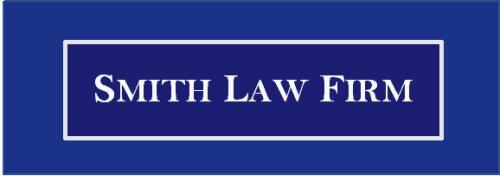Best Real Estate Due Diligence Lawyers in Toronto
Share your needs with us, get contacted by law firms.
Free. Takes 2 min.
Free Guide to Hiring a Real Estate Lawyer
List of the best lawyers in Toronto, Canada
About Real Estate Due Diligence Law in Toronto, Canada
Real Estate Due Diligence in Toronto, Canada involves a comprehensive evaluation of a property before finalizing a transaction. This process ensures that all legal, financial, and structural aspects of the property are thoroughly examined to avoid any future issues. This might include verifying legal titles, reviewing zoning laws, assessing environmental reports, and evaluating potential legal claims or disputes. In Toronto, robust due diligence is essential given the city's dynamic real estate market and complex legal framework governing property transactions.
Why You May Need a Lawyer
Individuals often seek legal assistance with Real Estate Due Diligence in several situations:
- When acquiring commercial or residential property to ensure compliance with laws and regulations.
- If there is uncertainty about property titles or encumbrances that might affect ownership.
- In cases of property rezoning or development to navigate municipal and provincial regulations.
- To uncover potential financial liabilities or litigations linked to the property.
- For assistance with contracts and agreements to safeguard interests and ensure clarity.
- When dealing with cross-border property transactions requiring understanding of international laws.
Local Laws Overview
In Toronto, several key legal aspects impact Real Estate Due Diligence:
- Property Titles: Ensuring clear titles and investigating any liens or encumbrances is crucial.
- Zoning Laws: The City of Toronto has specific zoning regulations that govern land use, which can affect property development and usage.
- Environmental Regulations: Compliance with environmental laws is mandatory, especially for commercial properties to avoid liabilities.
- Tax Laws: Understanding local property taxes and any outstanding dues is vital for accurate transaction costs.
- Building Codes and Permits: Adherence to local building codes and securing appropriate permits is necessary for any modifications or developments.
Frequently Asked Questions
What is the purpose of Real Estate Due Diligence?
The main purpose is to assess any potential risks associated with a property transaction, such as legal, structural, or financial issues, ensuring all elements are acceptable for the buyer.
How long does the due diligence process typically take?
The duration can vary, typically ranging from a few weeks to several months depending on the complexity of the property and the issues uncovered.
Can due diligence affect the final purchase price?
Yes, findings during due diligence can lead to negotiations that may affect the final purchase price or even the conditions of the sale.
What is involved in the title search during due diligence?
A title search involves reviewing public records to confirm the property's legal ownership and to identify any liens, encumbrances, or ownership disputes.
What should I look for in a due diligence report?
A due diligence report should include an analysis of titles, environmental assessments, zoning compliance, building inspections, and financial evaluations.
Can I perform due diligence on my own?
While certain aspects can be conducted without professional help, engaging lawyers and other experts ensures a comprehensive evaluation and mitigates potential legal risks.
How does due diligence differ for commercial properties?
Commercial due diligence typically encompasses more extensive assessments, such as tenant leases, potential business impacts, and more rigorous environmental and zoning checks.
Are there specific laws regarding condo due diligence in Toronto?
Yes, condo transactions include additional considerations such as reviewing condominium bylaws, financial statements, reserve funds, and status certificates.
What are common mistakes in real estate due diligence?
Common pitfalls include insufficient investigation of legal titles, overlooking zoning restrictions, and failure to identify or address environmental issues.
When is the best time to begin due diligence?
Due diligence should commence as soon as you express serious interest in a property, ideally before any formal purchase agreement is signed.
Additional Resources
Several resources can be invaluable for those seeking more information about Real Estate Due Diligence in Toronto:
- The Law Society of Ontario: Provides resources and directories for finding qualified real estate lawyers.
- City of Toronto's Official Website: Offers zoning maps and information on property taxes which are crucial for due diligence.
- Real Estate Council of Ontario (RECO): Supplies guidance on real estate practices and consumer protection in Ontario.
- Ontario Ministry of Municipal Affairs and Housing: Provides legislative information on housing and property regulations.
Next Steps
If you need legal assistance with Real Estate Due Diligence in Toronto, consider the following steps:
- Consult a Lawyer: Engage a qualified real estate lawyer experienced in due diligence processes to assist with your transaction analyses and documentation.
- Gather Documentation: Collect all necessary documents like property titles, tax returns, and zoning permits to facilitate the due diligence process.
- Schedule Inspections: Arrange for structural, environmental, and legal inspections of the property to identify potential issues.
- Review Findings: Analyze findings with your lawyer to determine risks and opportunities, and discuss potential re-negotiations of terms or price.
- Negotiate Terms: Based on due diligence outcomes, engage in negotiations to secure favorable terms or address issues prior to finalizing the purchase.
Lawzana helps you find the best lawyers and law firms in Toronto through a curated and pre-screened list of qualified legal professionals. Our platform offers rankings and detailed profiles of attorneys and law firms, allowing you to compare based on practice areas, including Real Estate Due Diligence, experience, and client feedback.
Each profile includes a description of the firm's areas of practice, client reviews, team members and partners, year of establishment, spoken languages, office locations, contact information, social media presence, and any published articles or resources. Most firms on our platform speak English and are experienced in both local and international legal matters.
Get a quote from top-rated law firms in Toronto, Canada — quickly, securely, and without unnecessary hassle.
Disclaimer:
The information provided on this page is for general informational purposes only and does not constitute legal advice. While we strive to ensure the accuracy and relevance of the content, legal information may change over time, and interpretations of the law can vary. You should always consult with a qualified legal professional for advice specific to your situation.
We disclaim all liability for actions taken or not taken based on the content of this page. If you believe any information is incorrect or outdated, please contact us, and we will review and update it where appropriate.















